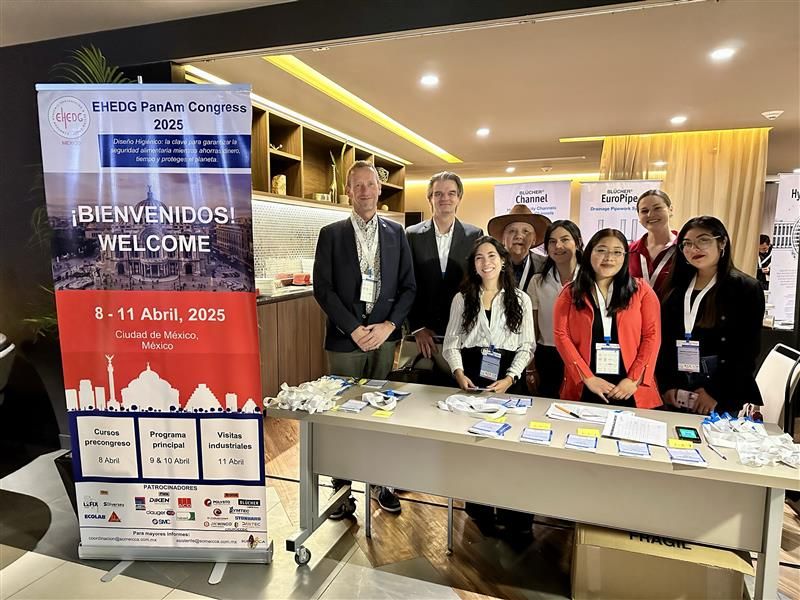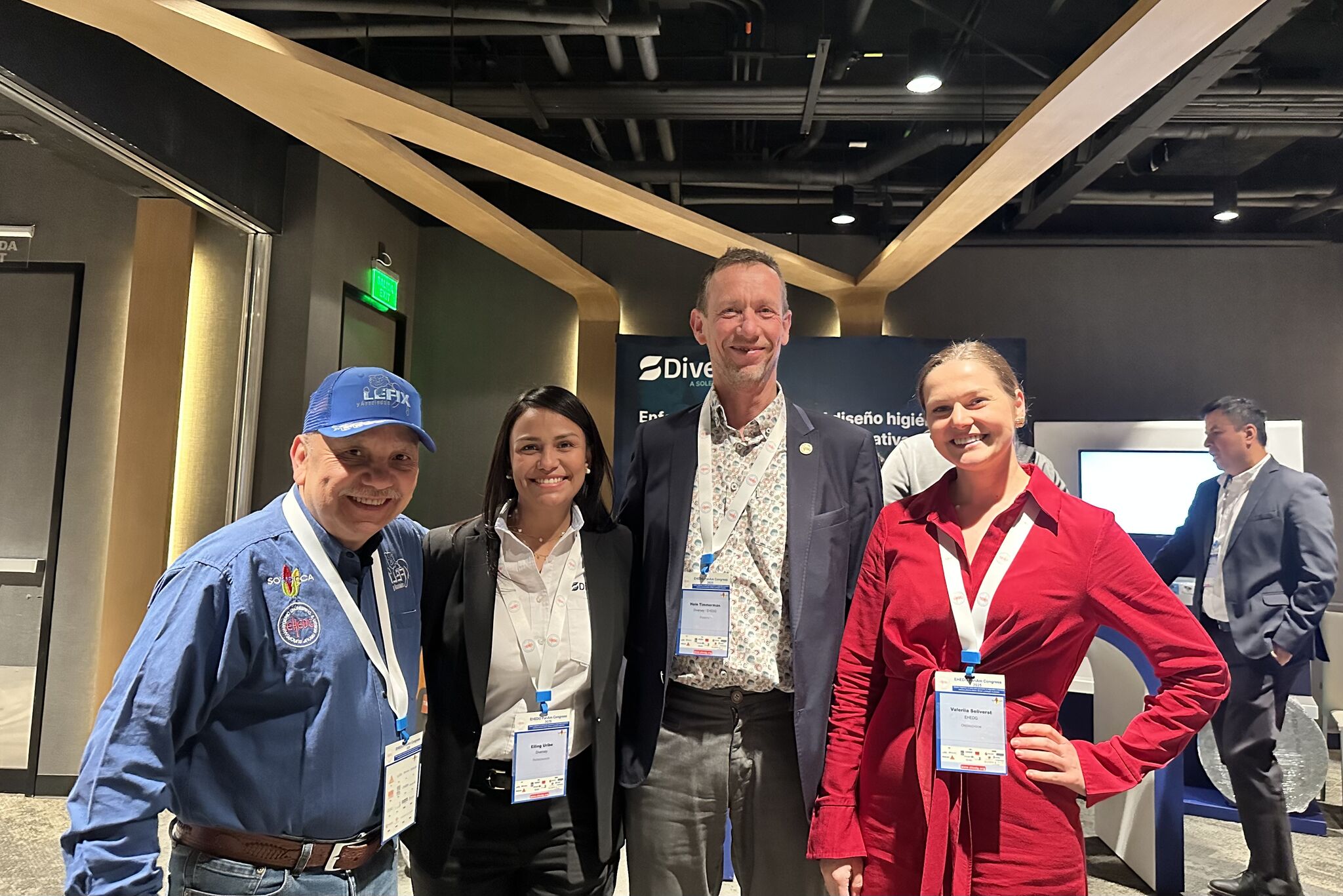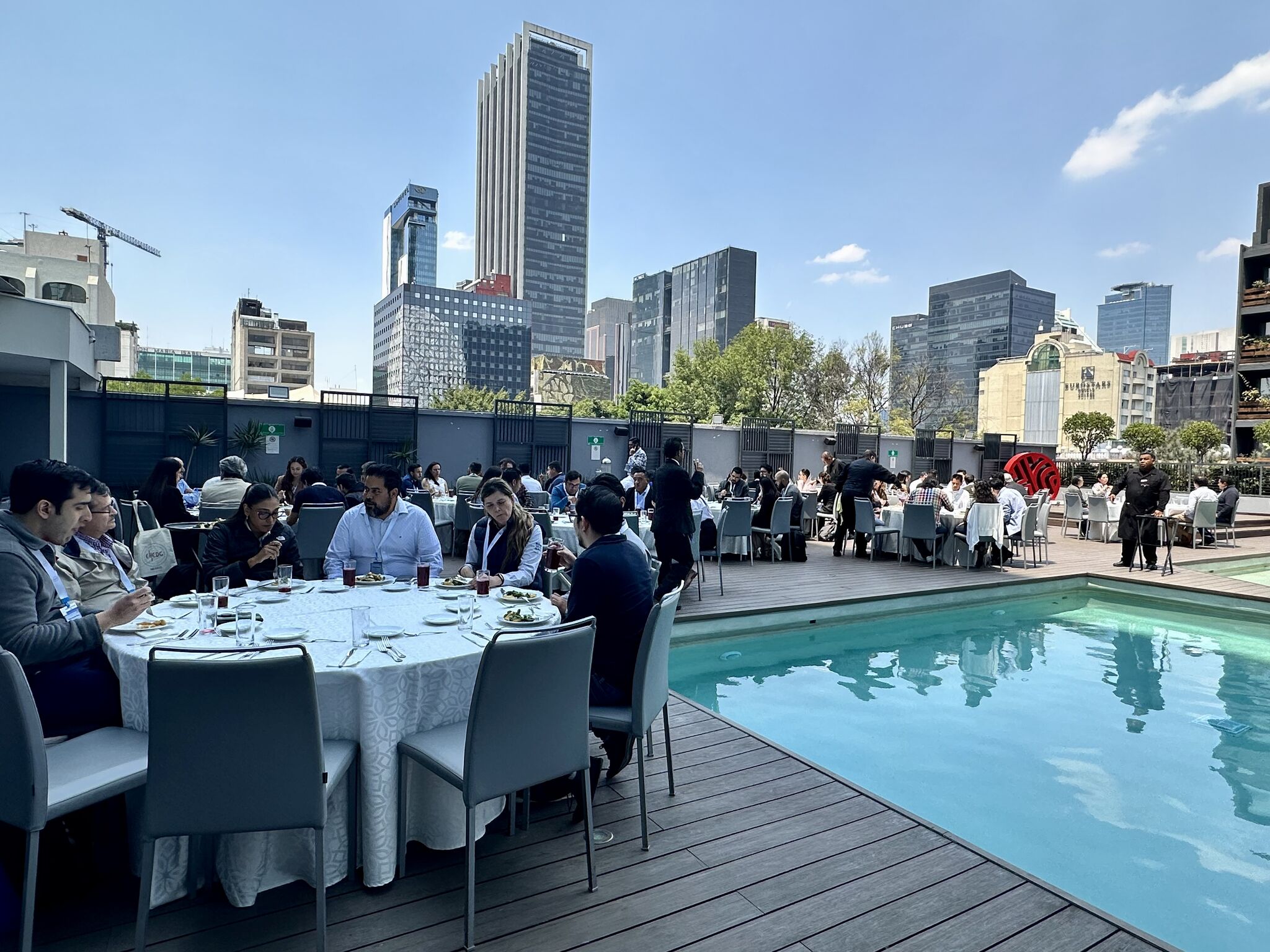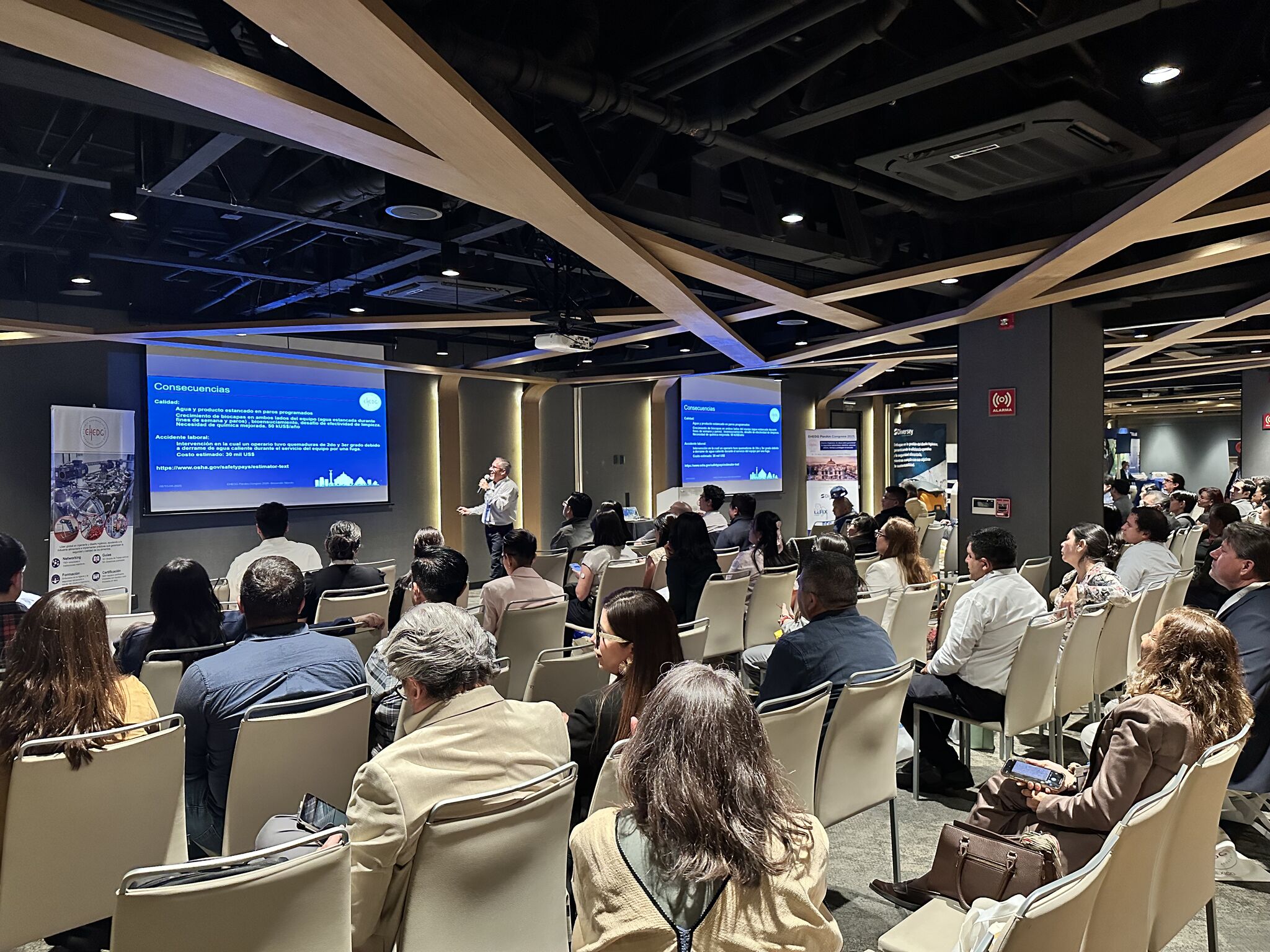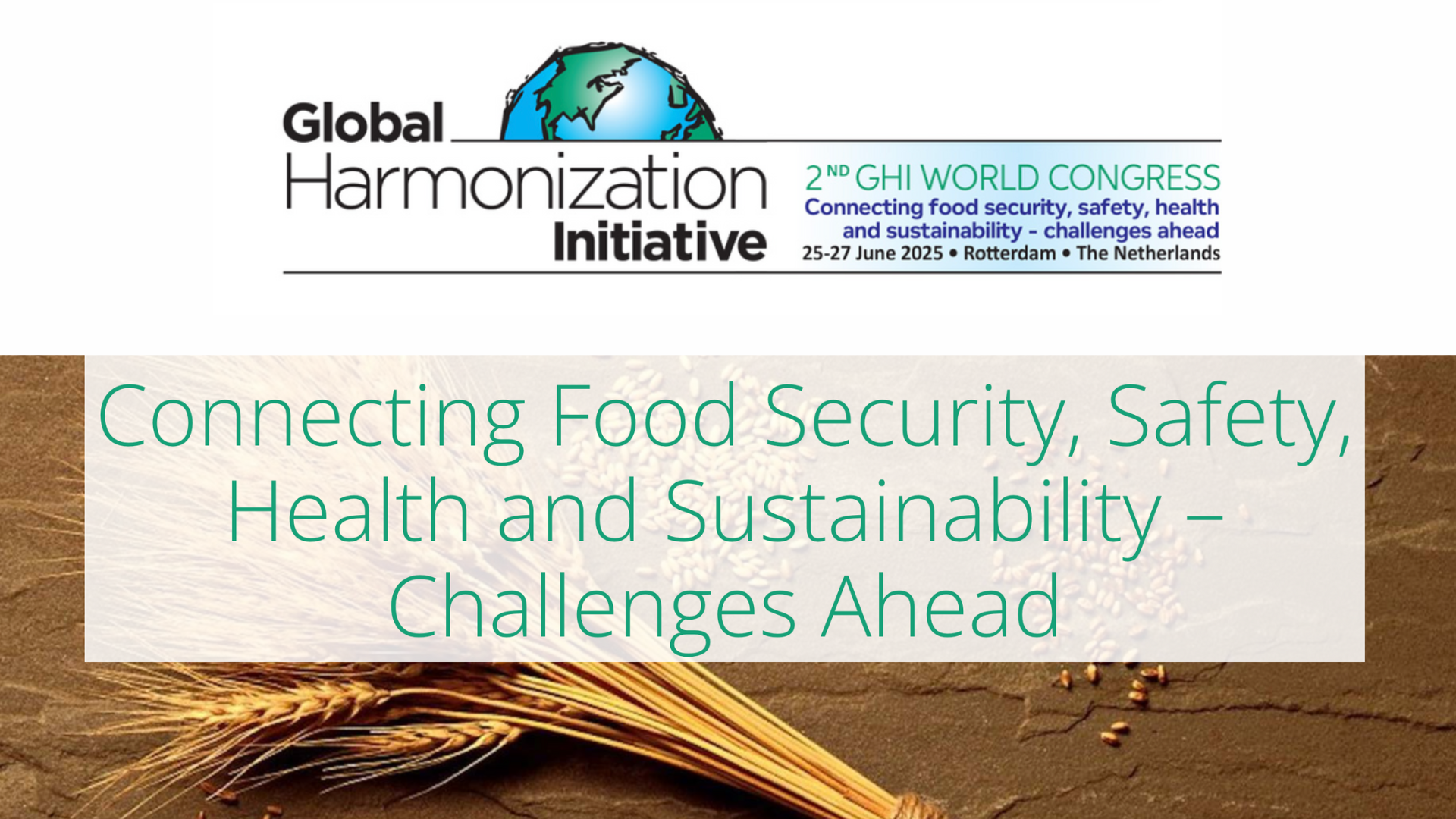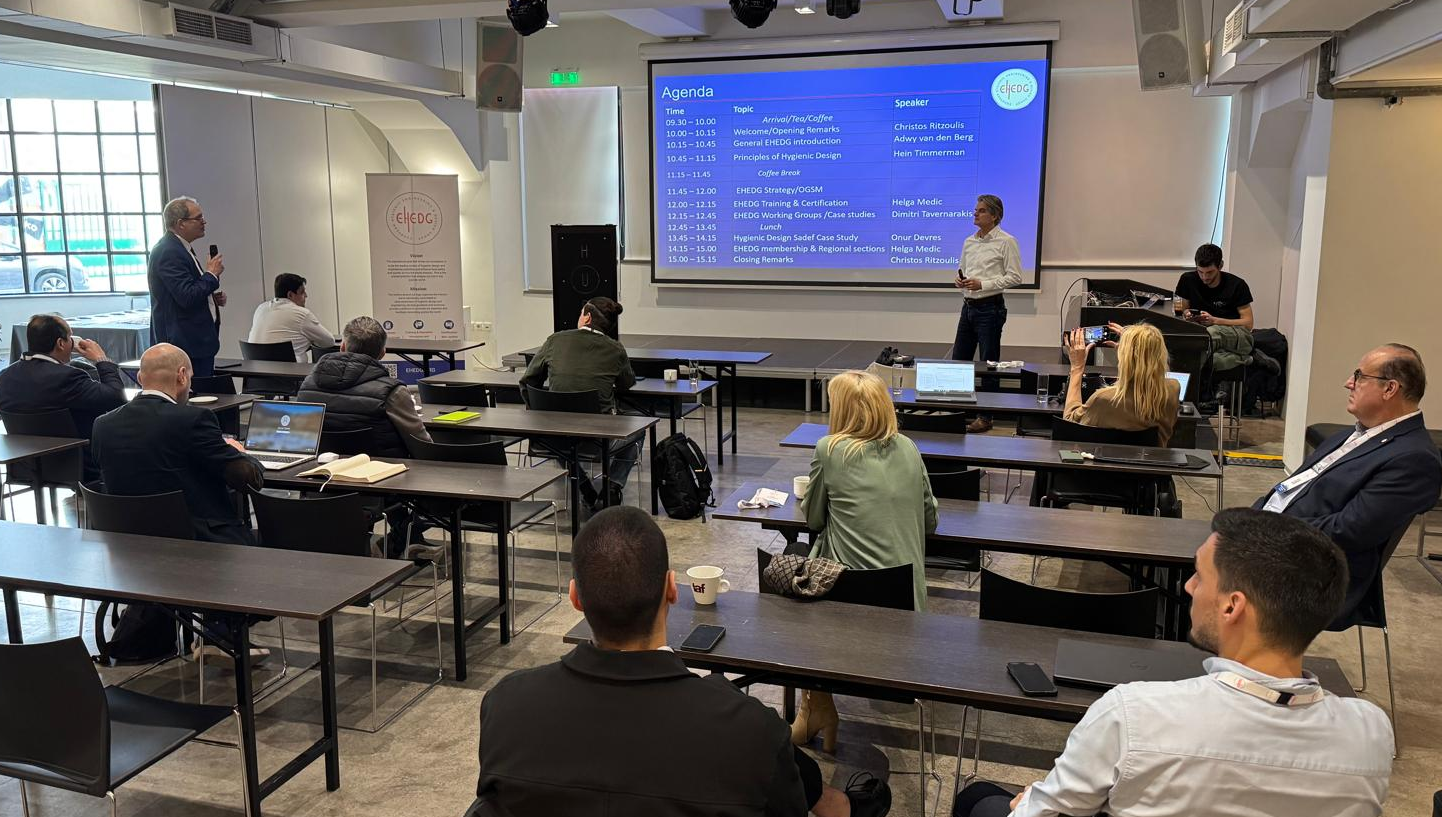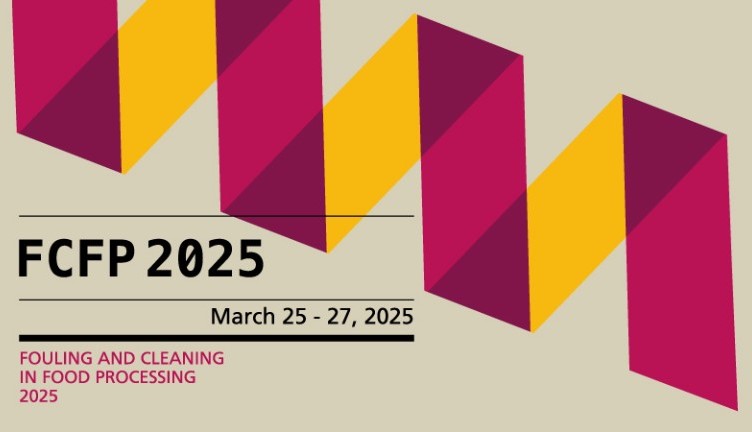EHEDG PanAm Congress 2025: A Celebration of Innovation in Hygienic Design
From 8th to 10th April 2025, Mexico City hosted the highly anticipated EHEDG PanAm Congress 2025, drawing together experts, innovators and leaders from across the food and beverage industry. Over two days of engaging presentations and workshops, participants explored the latest trends, challenges, and solutions in hygienic engineering and food safety. Here is a summary of the key presentations that marked this prestigious event.
Opening Remarks: Setting the Stage for Innovation
The Congress opened on 9th April with a welcome address by Adwy van den Berg, Director of EHEDG, who set the tone for the sessions to follow. His introduction underscored the vital importance of collaboration and knowledge-sharing to drive improvements in hygienic design globally.
Following this, Hein Timmerman, Global Sector Specialist at Diversey - A Solenis Company and President of EHEDG, delivered an insightful talk on "Cleaning and Cleanability: The Chicken or the Egg...", exploring the intricate relationship between equipment design and cleaning efficiency. His session highlighted the need for a holistic approach to ensure the highest standards of food safety.
Day One: Core Themes and Highlights
Risk Assessment in Equipment Procurement
Esmeralda Paz Lemus, Project Manager at LEFIX y Asociados, shared a real-world case study on evaluating hygienic design risks during equipment procurement. She demonstrated how risk management, despite initial investment costs, results in long-term operational savings and efficiency.
Sanitary Design as a Productivity Tool
Miguel Almanza Castillo, Food Safety Leader at PepsiCo, emphasised how sanitary equipment design not only ensures food safety but also boosts productivity and reduces operational costs. His presentation advocated for viewing hygienic design as a strategic investment in sustainability and profitability.
The Critical Role of Air Treatment
Sébastien Lagneau, Technical Manager at Clauger México, presented on "Air Treatment: The Key to Safe Food Production", stressing the critical importance of effective air management in maintaining hygienic conditions within food processing environments.
Sanitation Programmes for Low-Moisture Ready-to-Eat Foods
Quetzalcóatl Méndez Díaz, Director of Quality and Food Safety at Nutresa, offered guidance on sanitation best practices, focusing on the FDA's upcoming draft guidance for low-moisture foods. His talk provided attendees with a roadmap to future regulatory compliance.
Insights into FDA Recommendations
Alex Maroto Hernández from EcoLab Latin America discussed the nuances of the FDA's new draft recommendations, offering valuable perspectives for businesses seeking to stay ahead of food safety regulations.
Day One Afternoon: Deep Dives into Hygienic Design
Economic Benefits Beyond Basic Compliance
In his presentation "Beyond Hygienic Design", Elias Mendez, Regional Sales Manager at GEA, showcased real-world examples where scientifically robust hygienic designs led to significant economic gains and productivity improvements.
The Importance of Valve Design
Martín Álvarez, Executive Director at EHEDG Brazil & bect Ltda., discussed hygienic and aseptic valves, detailing how their correct selection and maintenance prevent contamination, enhance cleanability, and reduce operational downtime.
Surface Treatments for Stainless Steel
Concluding the day's presentations, Martín Álvarez also delivered a compelling talk on "Surface Treatment in Stainless Steels and Its Impact on Hygienic Conditions", expanding on how surface finishes influence fouling, microbial safety, and sustainability.
Day Two: Sustainability and Future Standards
Sustainable Cleaning Practices
The second day began with Gabe Miller, Business Owner at Process Innovation – Food Safety, LLC, who discussed "Cleaning & Sanitizing – Profitable Sustainability". His session highlighted how sustainable sanitation processes can simultaneously drive profitability and environmental stewardship.
Equipment Management and New FSSC 22000 Requirements
Juliani Arimura, LATAM Representative for FSSC, introduced attendees to the latest updates in FSSC 22000 version 6, particularly emphasising hygienic design's enhanced role in equipment management and food safety systems.
Looking Ahead
The EHEDG PanAm Congress 2025 proved to be a remarkable gathering, showcasing both the critical challenges and inspiring solutions shaping the future of hygienic engineering. With a rich exchange of expertise and a collective commitment to innovation, the Congress reaffirmed that hygienic design is not merely a regulatory requirement but a cornerstone of sustainable, profitable, and safe food production across the Americas.

